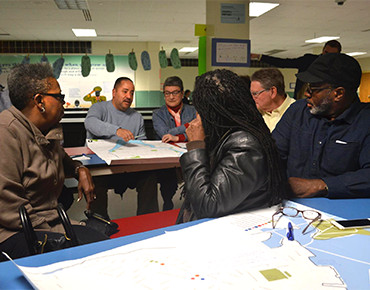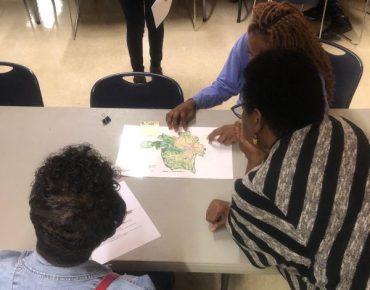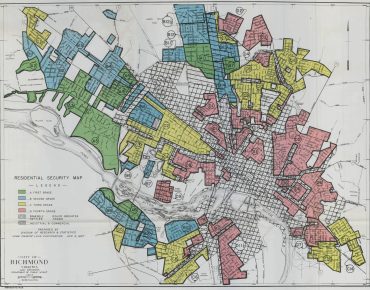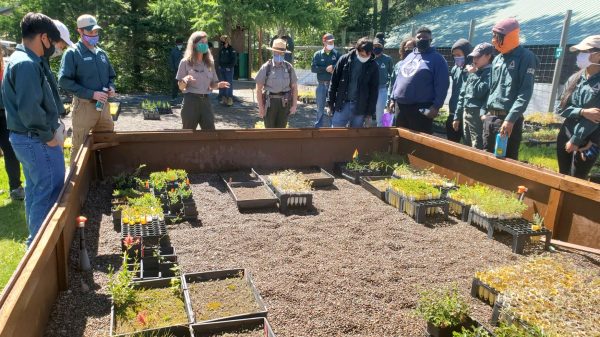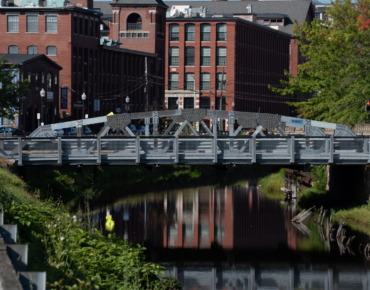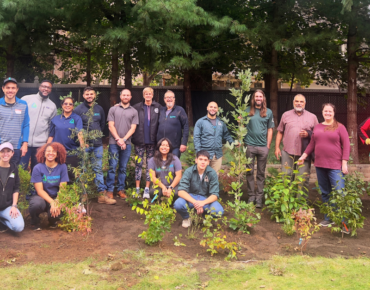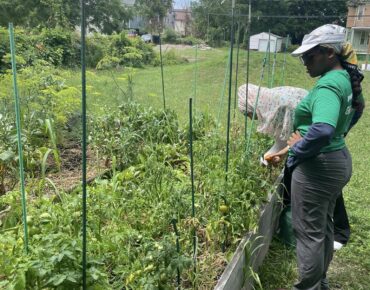Challenging injustice, catalyzing renewal
Groundwork USA works predominantly in low- and moderate-income neighborhoods and in communities of color, places where brownfields, environmental contamination, and illegal dumping are all too common, access to parks and playgrounds, grocery stores, transit, and other healthy living infrastructure is limited, and the continued legacies of systemic disinvestment, poverty, and racism are a daily challenge. Though unjust, the on-the-ground realities faced by the communities in which Groundwork Trusts work present opportunities to catalyze transformation and renewal driven by grassroots efforts and everyday people, especially young people.
Working with community residents through inclusive and equitable partnerships and processes, Groundwork Trusts engage people in working across difference, building trust, countering historic and systemic disparities, and unifying local residents to shape and create a vision and positive change of their own definition within their neighborhood landscapes and wider communities.
